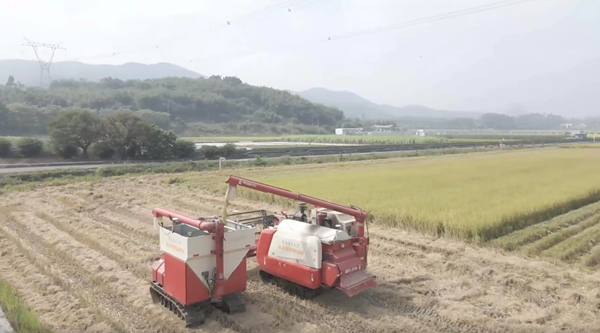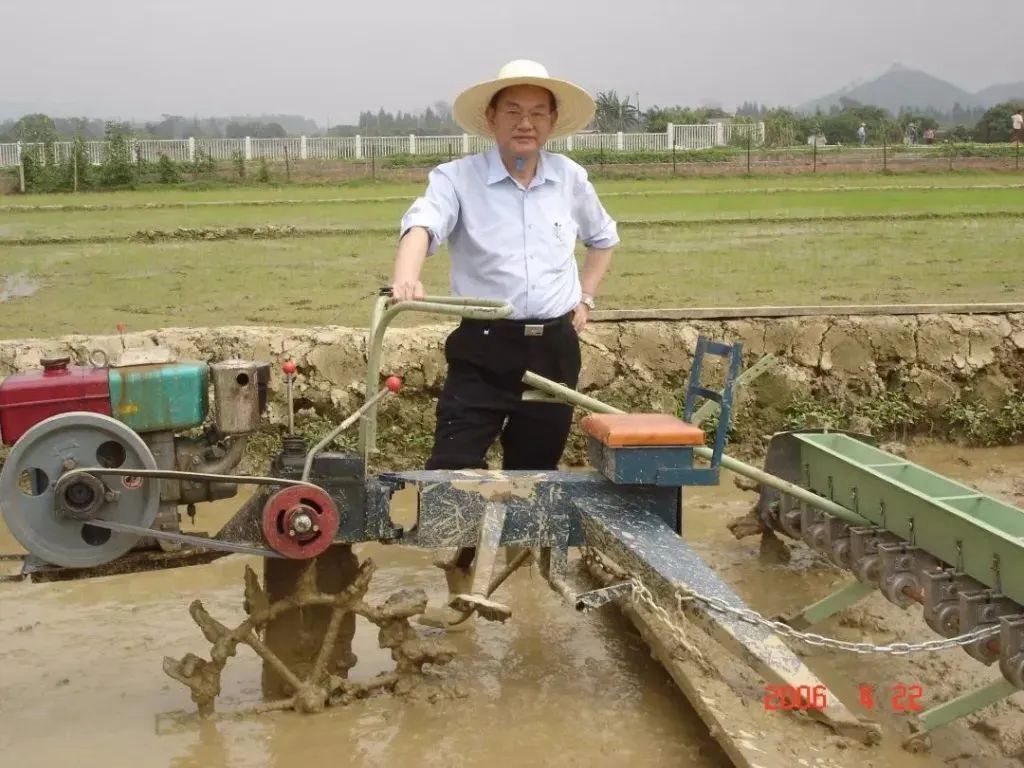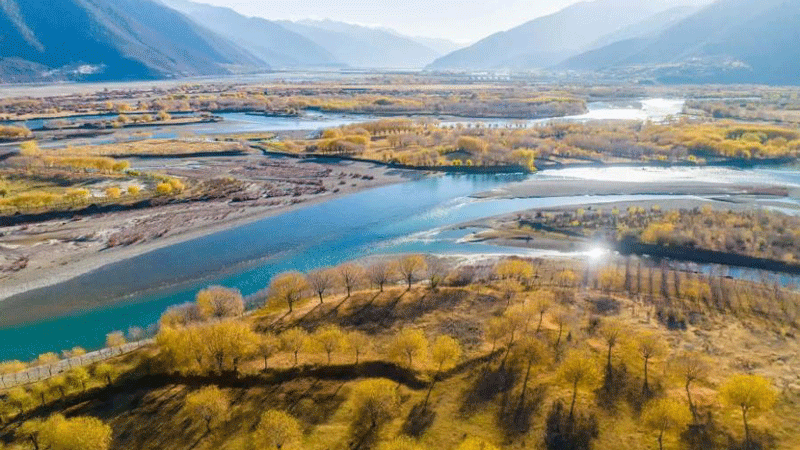First unmanned rice farm in S China's Guangdong secures bumper harvest
The first unmanned rice farm in south China's Guangdong Province, and also the first farm of its kind in the world, recently reaped a bumper harvest of late-season rice, with the whole harvesting process completed by two self-driving harvesters and a self-driving grain truck.

Photo shows a self-driving harvester and grain truck working in collaboration in a field. (Photo/CMG Voice of China)
After the harvesters gathered rice in the fields, they sent signals to the grain truck to let it know their exact location. The grain truck accurately located the harvesters, went to the location and picked up the grain, and then transported it to a granary.
Located in Zengcheng district of Guangzhou, capital of Guangdong Province, the unmanned farm belongs to the South China Agricultural University (SCAU) in Guangzhou, and covers an area of 50 mu (about 3.33 hectares). It was built by a research team led by Luo Xiwen, an academician of the Chinese Academy of Engineering and professor at the SCAU.

A self-driving agricultural machine works in a field. (Photo/CMG Voice of China)
In 2020, Luo's team built this unmanned rice farm based on its self-developed intelligent agricultural machinery, which uses the country's BeiDou Navigation Satellite System (BDS), in a bid to find a solution to the problems of "who farms the land" and "how to farm the land".
In the past nearly three years, the team has made breakthroughs in key technologies for unmanned farms and demonstrated the entire process of tillage, planting, management, and harvesting of rice on the farm.
In 2021, the unmanned farm reaped a good harvest of early-season rice, with one rice variety recording a yield of 662.29 kilograms per mu, 32 percent higher than the average per mu yield of the variety grown in other areas of the locality.
Collaboration among agricultural machines has significantly improved work efficiency and represents a new technological breakthrough, Luo said, noting that it also mirrors the major achievements China has made in the fields of navigation and automatic operation of agricultural machinery over the past years.

Luo Xiwen, an academician of the Chinese Academy of Engineering and expert in agricultural machinery, poses for a photo with a first-generation paddy planter. Luo has also made the picture the profile photo of his WeChat account to motivate himself to keep improving agricultural machines. (Photo/CMG Voice of China)
China is a world leader in multi-machine collaboration, and has done a better job than most in the development of a master-slave navigation systems for harvesting, according to Luo.
"Two harvesters to one grain truck - we did it. If the fields are relatively concentrated and the plots are bigger, we may be able to increase the number of harvesters to three or even four. We will continue to work on that," he said.
Unleashing productive forces for farmers has been the motivation for Luo to pursue the path of developing agricultural machinery over the years.
The 77-year-old professor can still vividly recall working in the fields with his parents when he was young.

Luo Xiwen, an academician of the Chinese Academy of Engineering and expert in agricultural machinery, has lunch with his students by rice fields. (Photo/CMG Voice of China)
"My hometown is in Zhuzhou City, Hunan Province. It's a place where people grow rice. I started transplanting rice seedlings when I was six or seven. The most difficult part of the job is that it causes a lot of pain in your lower back. I can still remember clearly how we worked in the fields," Luo said.
Luo has always believed that in order to develop good agricultural machinery, researchers must work in the fields to understand what farmers need and how a machine can help free farmers from heavy work. Following this belief, he has led his team to work in the fields and continuously improve agricultural machines.
The team is now striving to develop a better self-driving system that can adapt to multiple situations and different plots, and is also trying to further spread intelligent technologies among farmers so that unmanned farming can be promoted and adopted in more places, according to Luo.
Photos
Related Stories
Copyright © 2022 People's Daily Online. All Rights Reserved.









